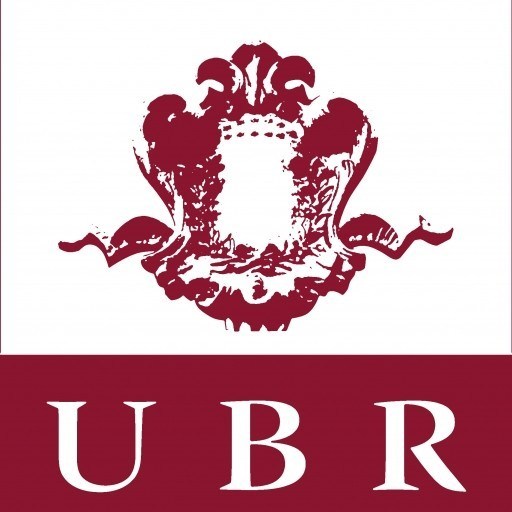Photos of university / #unibuc
The Bachelor's Degree Program in Comparative Politics at the University of Bucharest offers students a comprehensive understanding of political systems, institutions, and ideologies across different countries and regions. This interdisciplinary program combines theoretical frameworks with empirical research methods to analyze the functioning of political actors, policy processes, and governance structures worldwide. Students will explore key issues such as democratization, authoritarianism, political culture, public administration, and international relations, fostering critical thinking and analytical skills essential for a career in political analysis, policy advising, international organizations, or academia. The curriculum emphasizes a comparative approach, allowing students to examine similarities and differences between political entities, understand contextual factors influencing political development, and evaluate policy effectiveness. Through a combination of lectures, seminars, case studies, and research projects, students gain practical skills in data collection, qualitative and quantitative analysis, and report writing. The program also encourages active participation in debates, conferences, and internships to enhance practical knowledge and professional networking. Graduates will be well-equipped to interpret complex political phenomena, contribute to policy development, and pursue advanced studies in political science or related disciplines. The University of Bucharest ensures that students receive a rigorous and updated education, preparing them for dynamic career paths in domestic and international settings. With a diverse faculty of experienced researchers and practitioners, students benefit from a rich academic environment that promotes critical inquiry, multicultural awareness, and dedicated research. The Comparative Politics program at the University of Bucharest aims to produce insightful, responsible, and globally-minded graduates committed to fostering democratic values and contributing to societal development locally and worldwide.
Program overview: The Bachelor's Degree in Comparative Politics at the University of Bucharest offers students a comprehensive understanding of political systems, institutions, and processes across different countries. The program is designed to develop analytical skills, critical thinking, and a deep awareness of the complexities involved in political decision-making and governance worldwide. Throughout their studies, students explore areas such as political theory, international relations, public policy, democratization processes, authoritarian regimes, and political development. The curriculum combines theoretical foundations with practical applications, enabling students to compare various political systems, analyze political behaviors, and evaluate policy outcomes. Courses are taught by experienced faculty members with expertise in political science, international studies, and related fields, providing students with diverse perspectives and up-to-date knowledge. The program emphasizes research methodology, allowing students to conduct independent research, write academic papers, and present findings effectively. Additionally, students benefit from internships, seminars, and conferences that connect academic learning with real-world political issues. The university’s facilities and resources support a dynamic learning environment, fostering critical debate and collaborative projects. Graduates of the program are prepared for careers in government agencies, international organizations, research institutions, political consulting, NGOs, journalism, and academia. The programme aims to cultivate informed, active citizens capable of understanding and addressing contemporary political challenges on a national and global scale. By choosing the Comparative Politics program at the University of Bucharest, students embark on a rigorous academic journey that equips them with the knowledge, skills, and ethical awareness necessary for a successful career in the field of political science and beyond.
The Comparative Politics program at the University of Bucharest requires prospective students to possess a high school diploma or equivalent qualification for admission. Applicants must submit a completed application form along with certified transcripts of their previous academic achievements. In addition, proficiency in English is essential; therefore, candidates are typically required to provide proof of language proficiency through recognized tests such as TOEFL or IELTS, or demonstrate equivalent qualifications. The program may also evaluate applicants based on their motivation letter, which should outline their interest in political sciences and career aspirations in comparative politics. Admissions may include an interview process to assess the applicant’s analytical skills, critical thinking, and understanding of political systems. The program emphasizes interdisciplinary knowledge, requiring students to undertake core courses in political theory, international relations, and research methodology, alongside specialized modules in comparative politics. Students are expected to complete a series of coursework, participate in seminars, and undertake independent research projects. Practical components such as internships or participation in conferences may also be part of the curriculum, fostering empirical skills and professional networking. To graduate, students must accumulate a specified number of ECTS credits through coursework, exams, and the successful completion of a bachelor’s thesis or research paper under faculty supervision. The curriculum is designed to develop analytical skills, comparative analysis capabilities, and an understanding of political phenomena across different countries and contexts. Overall, the program aims to prepare graduates for careers in academia, public policy, international organizations, or governmental agencies, requiring a solid foundation in social sciences, strong research competencies, and an ability to critically evaluate political systems worldwide.
The Comparative Politics program at the University of Bucharest offers various financing options for students to support their academic pursuits. Typically, tuition fees are established annually and are published on the university's official websites and relevant faculty pages. For domestic students, payment can be made in full at the beginning of the academic year or through installment plans, depending on the regulations set by the university. International students may have specific fees which can vary based on their country of origin and agreements between institutions.
Financial aid in the form of scholarships is available for deserving students, including governmental scholarships, university-specific awards, and external funding opportunities. These scholarships usually consider academic performance, socio-economic background, and extracurricular achievements. The university's scholarship office provides detailed criteria and application procedures, and interested students are encouraged to apply early to maximize their chances of obtaining financial support.
Additionally, students can explore part-time employment options within the university or in nearby businesses and institutions. The university often collaborates with various governmental and private sector organizations that offer internships, research assistant positions, and part-time jobs suitable for students, enabling them to earn while studying and reducing financial burdens.
Furthermore, students in the Comparative Politics program have access to student loans in some cases, depending on regulations governing higher education financing in Romania. These loans are typically offered through government-sponsored banks or financial institutions and may have favorable interest rates and repayment terms for students.
The university also promotes lifelong learning and continuous professional development, which sometimes include paid workshops, seminars, and conferences that can be financed through various grants and sponsorships. It is recommended that students consult the university's financial aid office and official website regularly for updated information on available funding opportunities, application deadlines, and detailed procedures.
Overall, financing studies in Comparative Politics at the University of Bucharest is designed to be accessible, with multiple options to support students financially. The combination of scholarships, employment opportunities, and financial support schemes ensures that students from diverse backgrounds can pursue their academic goals without undue financial hardship.
Comparative Politics at the University of Bucharest is a comprehensive academic programme designed to provide students with an in-depth understanding of political systems, institutions, processes, and behavior across different countries. The curriculum encompasses a wide range of topics, including political theory, government structures, policy analysis, political culture, and electoral systems. Students are introduced to methodological approaches used in political research, equipping them with critical thinking skills and analytical tools necessary for both academic and professional pursuits in the field of political science.
The programme aims to develop a nuanced understanding of the similarities and differences among various political regimes, fostering a comparative perspective that is essential for analyzing international and regional politics. Courses often include case studies from Europe, the Americas, Asia, and Africa, enabling students to contextualize theoretical concepts within real-world political scenarios. Emphasis is placed on understanding the role of political institutions, governance, public policies, and the impact of globalization on national politics.
Students benefit from a diverse faculty composed of experienced scholars and practitioners, offering insights from both academic research and practical policy-making. The programme also encourages active participation through seminars, workshops, and research projects, promoting critical discussion and collaborative learning. Internships and partnerships with governmental and non-governmental organizations are available to facilitate practical experience and enhance employability.
Graduates of the Comparative Politics programme often pursue careers in government agencies, international organizations, research institutes, political analysis, journalism, or further academic studies. The programme's focus on analytical skills, research methodology, and comparative analysis prepares students to assess complex political issues and contribute to policymaking and research.
Overall, the Comparative Politics programme at the University of Bucharest provides a rigorous educational experience designed to produce skilled analysts and informed citizens capable of engaging with contemporary political challenges on both national and international levels.








